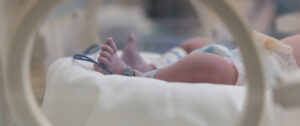With the implementation date for the new Standards for the Certificate of Clinical Competence in Speech-Language Pathology fast approaching (September 2014), the Council for Clinical Certification in Audiology and Speech-Language Pathology (CFCC) would like to review and highlight some of the major changes in certification standards between the 2005 and 2014 versions. Knowledge of these changes is requisite for faculty to properly prepare and advise students.
To begin with, the CFCC removed the majority of the university program process language and replaced it with language that is focused on outcomes. This change was motivated by two major factors. First, the preparation process is the responsibility of the Council on Academic Accreditation in Audiology and Speech-Language Pathology (CAA). Second, the goal of the revision was to create standards that focused on what applicants for certification should “look like” versus “how they were prepared.” Additionally, procedural language related to applying for certification was removed regarding issues such as how to apply for certification, as that issue is not specifically related to the standards.
What’s New in the 2014 Certification Standards?
With the above thought process in mind, the CFCC reviewed the 2005 standards in light of the results of the final report, A Practice and Curriculum Analysis for the Profession of Speech-Language Pathology, 2009. This comprehensive analysis yielded three primary areas for change: formative assessment, statistics/mathematics, and the physical science requirement.
Formative assessment. The formative assessment requirement was not retained, specifically because this area remains the responsibility of the CAA and was thought to be an accreditation issue versus a certification issue.
Statistics/mathematics. The 2009 practice analysis review suggested the need for knowledge of statistics for an individual entering the profession. Standard IV-A now specifically includes the requirement for knowledge in statistics as noted below.
2014 SLP Standard IV-A: The applicant must have demonstrated knowledge of the biological sciences, physical sciences, statistics, and the social/behavioral sciences.
It is important to note that, in relation to this standard, research methodology courses in communication sciences and disorders (CSD) may not be used to satisfy the statistics requirement. The intention is that the statistics course be a stand-alone course that can be taken during undergraduate OR graduate academic course work.
Physical science requirement. The implementation language for Standard IV-A was slightly modified as it relates to knowledge of physical science. The implementation language now states that acceptable courses in physical sciences should include physics or chemistry. The wording here was selected to best guide university programs in determining what courses would best fulfill the standard. However, the intent of the wording was to allow discretion for programs to make specific decisions regarding the acceptability of courses in the basic science area. Although the CFCC strongly suggests that physics or chemistry would be the optimal choices, the final decision is left with the CSD programs.
Other Changes
Program of study. In addition to the three areas described above, another noteworthy change is the new wording of Standard III: Program of Study. The standard now reads as follows:
The applicant for certification must have completed a program of study (a minimum of 36 semester credit hours at the graduate level) that includes academic course work and supervised clinical experience sufficient in depth and breadth to achieve the specified knowledge and skills outcomes stipulated in Standards IV-A through IV-G and Standards V-A through V-C.
Notice that reference to “75 semester credit hours overall” has been removed from Program of Study, because a specified credit hour total was thought to be too prescriptive. The 2014 certification standards focus on the knowledge and skills obtained, rather than how they are obtained. However, the specific requirement of 36 semester hours at the graduate level was retained in response to comments received during widespread peer review of the initial version of the revision.
Praxis exam. On a separate but related note, Standard VI: Assessment states:
The applicant must have passed the national examination adopted by ASHA for purposes of certification in speech-language pathology.
The Praxis Examination in Speech-Language Pathology has recently undergone revision to reflect the results of the practice analysis; a new form of the exam will be administered for the first time in September 2014. The Educational Testing Service, which owns and administers the exam, conducted a standard-setting (or cut-score) study related to the new exam by convening a group of subject-matter experts to review the revised version and make a recommendation to the CFCC for the passing score. At its February 21–23, 2014, meeting, the CFCC approved the new passing score—162 based on a scale of 100–200.
Certification application. When advising students (who will later become certification applicants), it is important to note the following:
- The 2005 certification standards will expire August 31, 2014.
- A new certification application is now available under the 2014 certification standards. After September 1, 2014, the 2005 certification application will no longer be used.
- As of September 1, 2013, applicants have been eligible to apply under either the 2005 or 2014 certification standards, provided they submit application for certification by August 31, 2014.
- After September 1, 2014, there will be no additional grace period to apply under the 2005 certification standards.
- Applicants who graduate in May 2014 may still apply under the 2005 certification standards even though they will not complete their clinical fellowship until February 2015 or later.Application for certification can be made upon completion of academic course work and clinical practicum requirements. Applicants have 2 years from the initiation of the certification process to begin their clinical fellowship and 4 years to complete the experience once initiated. Certification status will remain in process during this period of time until certification is awarded.
A comprehensive explanation and comparison of the 2005 and 2014 standards can be found in theSLP Standards Crosswalk document [PDF].
Resources
All certified SLPs must maintain their certification through continued professional development. ASHA Special Interest Groups offer opportunities for continuing education through successful completion of self-studies offered through their online Perspectives publications.










